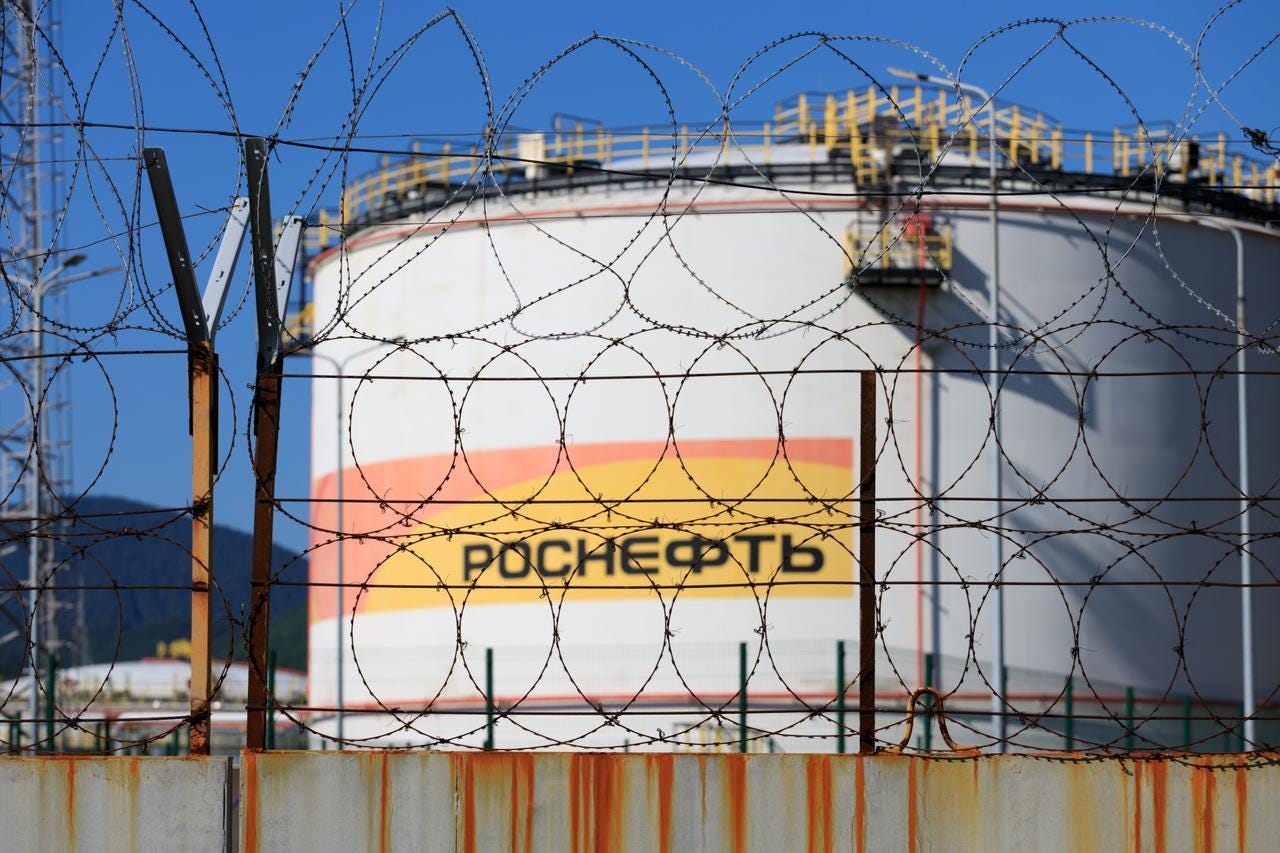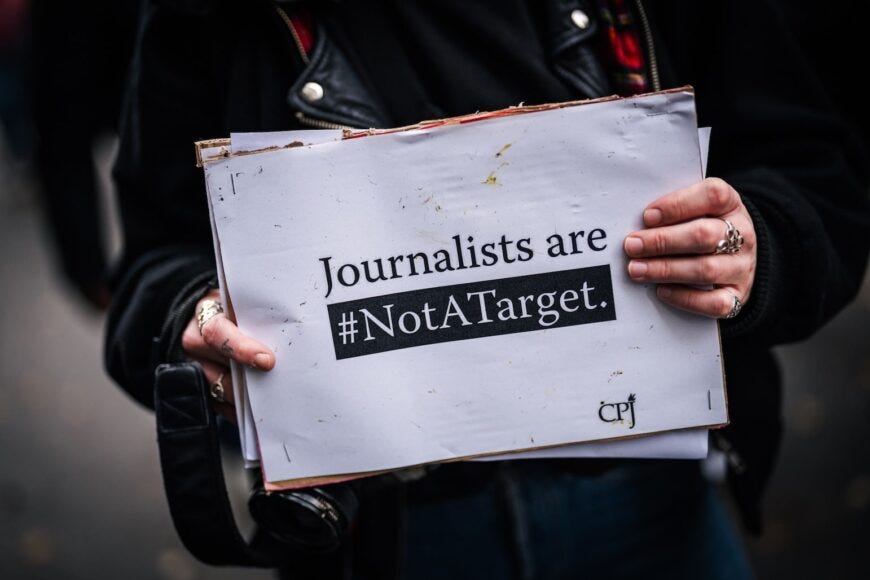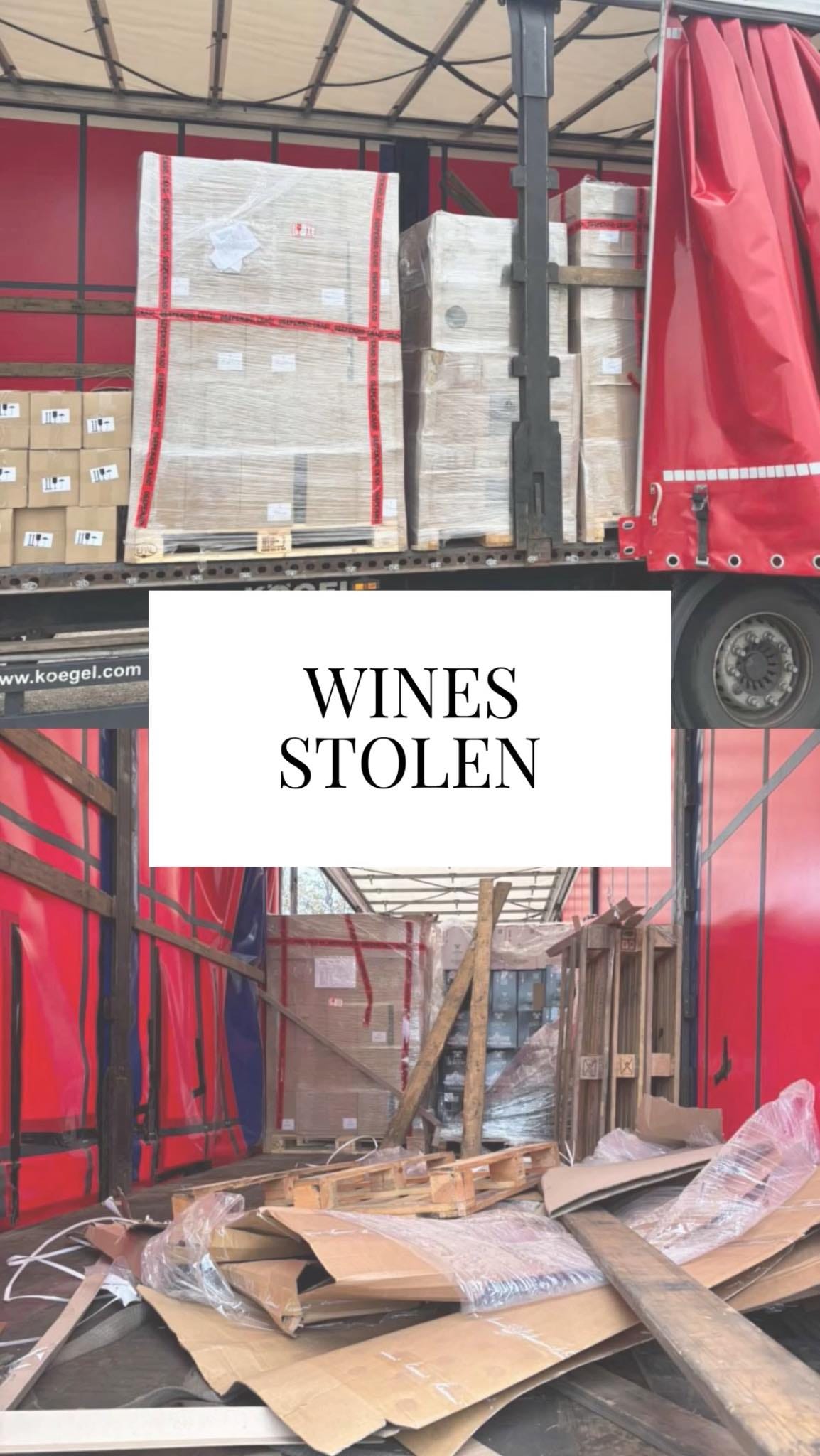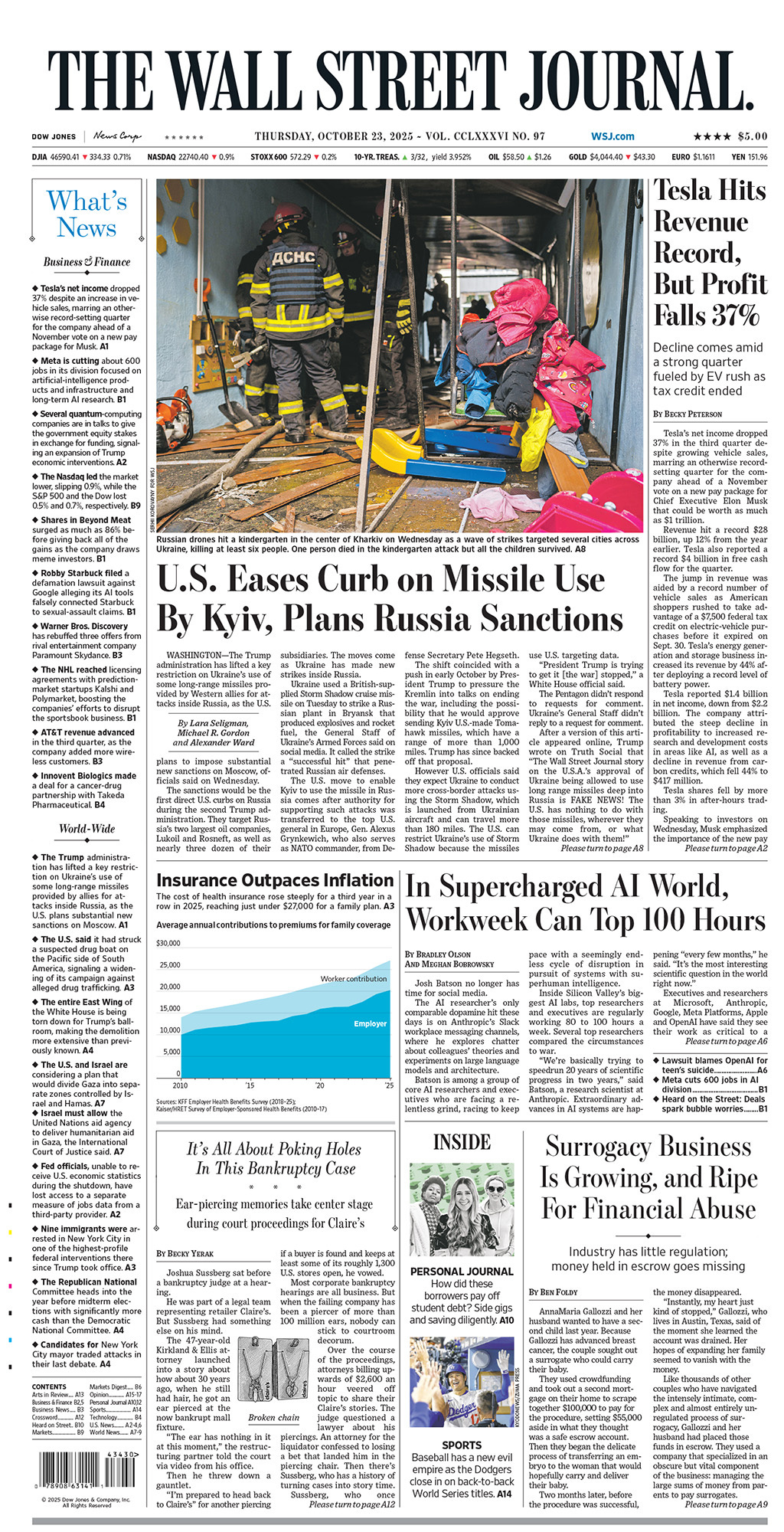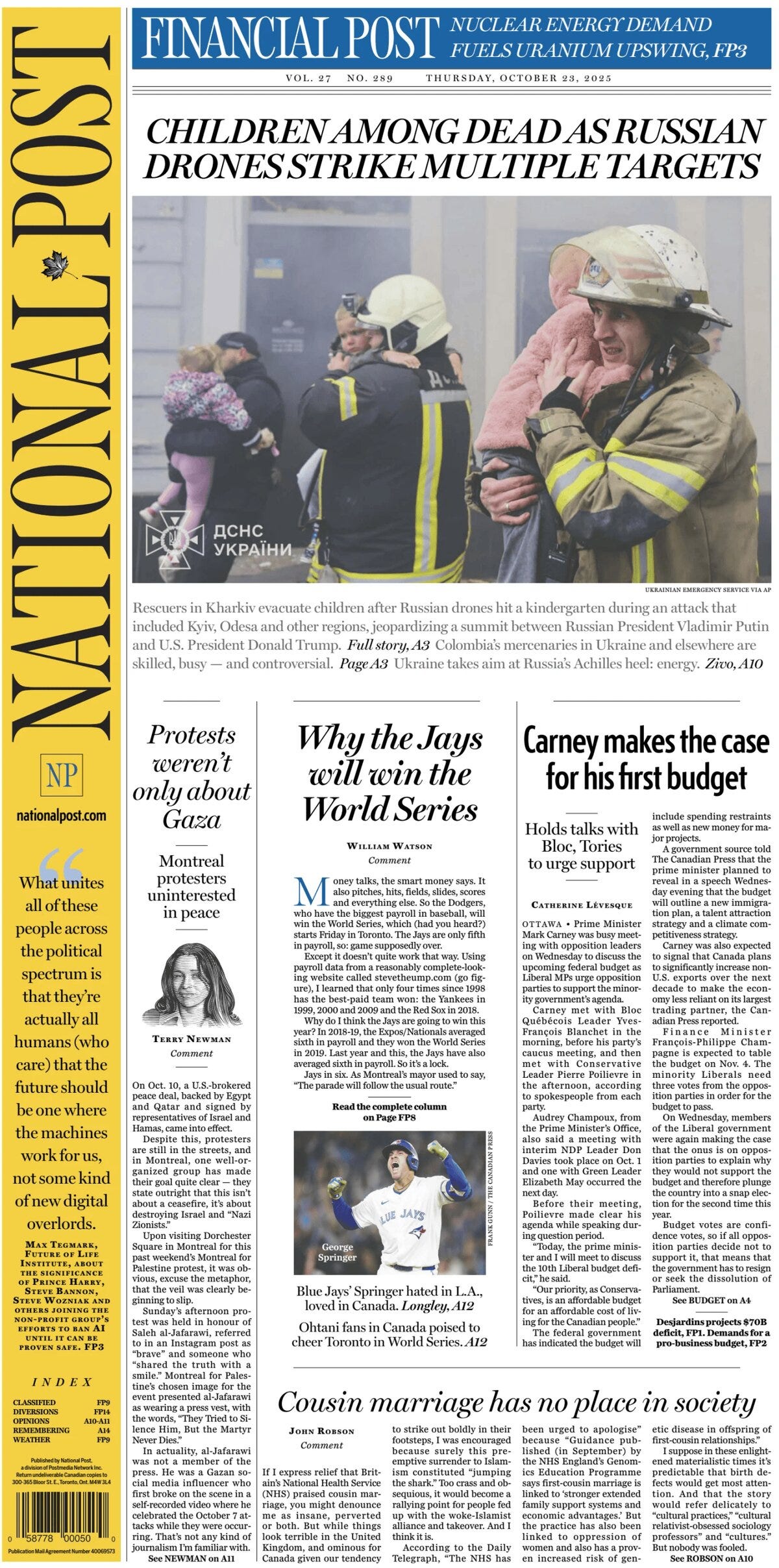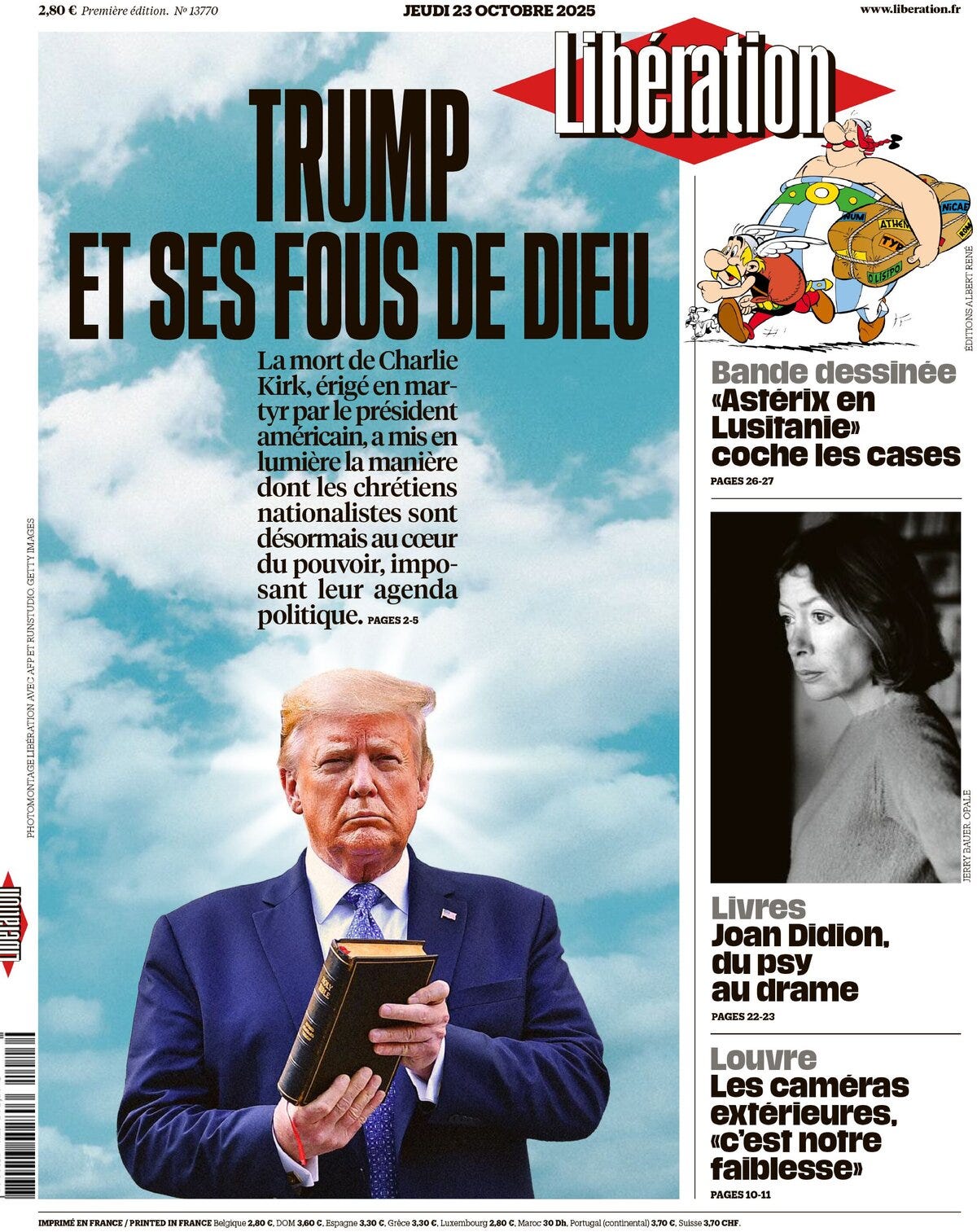Trump’s New Sanctions on Russia: Heavy on Optics, Light on Impact — for Now
Washington’s long-awaited strike on Rosneft & Lukoil is being hailed as “tremendous,” yet with a 4-week grace period, the Kremlin may find room to reroute, re-sell, & re-arm its war economy
After nearly four years of war in Ukraine, the West has finally targeted the financial engine driving Moscow’s assault: oil and gas. This week the United States, joined by the European Union and Britain, imposed sanctions on Russia’s largest energy firms - Rosneft and Lukoil (adding to Biden-era sanctions on Surgutneftegaz and Gazpromneft - in a move President Donald Trump hailed as “tremendous.”
The measures freeze assets and bar U.S. entities from dealings with the companies, while Brussels followed with parallel restrictions and a limited ban on Russian LNG imports. Together, they strike at the heart of the Kremlin’s wartime economy: energy exports that still fund much of its invasion of Ukraine.
But beneath the White House’s tough rhetoric lies a key caveat — the sanctions do not take full effect for another four weeks (surprisingly not two weeks, Trump’s favorite horizon for shake downs). Until November 21, energy traders, refiners, and shipping companies are permitted to “wind down” their contracts. Analysts say that delay gives Moscow, Beijing, and New Delhi critical time to re-route oil flows, set up shell firms, and pre-pay deals before restrictions bite.
“In the short term the Trump administration has actually helped Russia. It has provided a four week grace period for foreign companies to buy as much Russian oil as they possibly can, safe in the knowledge that the earliest they can conceivably be sanctioned by the USA is 21 November” - Phillips P. Obrien, Professor of Strategic Studies
Energy experts agree the initial impact will be muted. Both Rosneft and Lukoil have spent years “sanctions-proofing” operations and transacting in rubles and yuan, while China and India remain major buyers of Russian crude. India’s Reliance Industries, which imports roughly 500,000 barrels a day, has reportedly begun scaling back purchases — but Beijing’s smaller “teapot” refineries show little sign of following suit. (The Indian Foreign Ministry has also pushed back against claims by Donald Trump that Delhi has agreed to stop buying Russian oil).
Even inside Russia, the economy remains more resilient than many expected. Moscow has weathered previous sanctions by exploiting loopholes, deploying a “shadow fleet” of aging tankers, and sustaining sales through third countries. Inflation and high interest rates are biting, yet the Kremlin continues to fund its war machine. Questions too about how tough Turkey - which controls two straits out of the Black Sea - is prepared to crack down on banned energy exports.
The bigger problem for the Kremlin, wrote CNN’s chief global affairs correspondent, Mathew Chance, is that “its favorite and well-tested strategy to manipulate the Trump White House – holding out the prospect of engagement on peace in Ukraine and dangling lucrative economic deals, while pressing ahead with its relentless military onslaught – appears to have run its course.”
Still, the new sanctions mark the first major punitive step of Trump’s second term, after months of mixed signals toward Moscow. The decision came days after the abrupt cancellation of a planned Trump–Putin summit in Budapest, and after Ukrainian strikes destroyed several Russian refineries (16 out of 21) — cutting refining capacity by up to 38 percent.
For Ukraine, the timing felt overdue. “We were waiting for them — God bless, I hope they will work,” President Volodymyr Zelensky told reporters in Brussels. He called the sanctions “a fair and absolutely deserved step.”
Yet whether the measures shift Kremlin behavior remains uncertain. Analysts like Tatiana Stanovaya and Maria Shagina (speaking to the NYT and RFE/RL respectively), warn that Putin views the war as existential and is willing to endure deep losses. Enforcement will be key: without aggressive pursuit of secondary sanctions on Chinese, Indian, and Turkish buyers, the new rules risk becoming more symbol than substance.
The new sanctions “will definitely be mitigated by sanctions proofing that not only Rosneft and LUKoil have done but also their buyers,” Rachel Ziemba, a sanctions researcher at the Center for a New American Security in Washington, told RFE/RL. “It will have some effect sure, and more than Europeans acting alone, but the real impact will depend on US willingness to not just threaten secondary sanctions on foreign financial institutions and ports but to do it,” she said.
Bottom Line
For now, the sanctions have jolted markets — oil prices spiked 5 percent — but offered the Kremlin breathing room. By granting a four-week cushion, the Trump administration may have handed Moscow and its co-conspirators just enough time to adjust.
It’s a high-stakes gamble: the most sweeping Western energy sanctions of the war — yet the slowest to take hold. (A World Briefing news synopsis, with RFE/RL, NYT, CNN, Reuters reporting and WB files)
“For Putin, this war is existential. He has shown that he is willing to bear significant costs to achieve his objectives, in terms of lost Russian lives and economic and military expenses. This latest round of sanctions will not change that calculus” - Jennifer Kavanaugh, a senior fellow at Defense Priorities
FBI Director Kash Patel and other officials on Thursday detailed a massive mafia-linked gambling and sports rigging probe that led to the arrests of Miami Heat guard Terry Rozier and Portland Trail Blazers head coach Chauncey Billups. The probe involved two major operations: One centered on illegal betting on various NBA games and another revolving around underground poker games, where “high-tech cheating technology” was used to steal millions from victims, US Attorney Joseph Nocella Jr. said. Among the defendants in the dual operations are members of four major American crime families, as well as current and former NBA players and coaches, New York City Police Commissioner Jessica Tisch said. This large-scale sports rigging and gambling probe is likely to rock the NBA, according to CNN senior legal analyst Elie Honig. He pointed out that many defendants in these two cases are not linked to the NBA at all, but members of the mafia or people who have become involved in gambling rings. “That’s what makes this case so remarkable – there’s such a sprawling enterprise,” said Honig. “And to see prominent members of the NBA working with, dealing with illegal gamblers – in some cases, perhaps mobsters – I think that’s going to send shockwaves through the NBA’s headquarters in Manhattan.” - CNN
The Committee to Protect Journalists is calling for a thorough investigation into the killing of Ukrainian journalists Olena Hramova, 43, and Yevhen Karmazin, 33, in a Russian drone attack on Thursday. “CPJ is deeply saddened and outraged by the killing of Ukrainian journalists Olena Hramova and Yevhen Karmazin in a Russian drone strike,” said Gulnoza Said, CPJ’s Europe and Central Asia program coordinator. “Their death is a tragic reminder of the risks that journalists face every day to tell the world about Russia’s war in Ukraine. Journalists are civilians under international humanitarian law and should be protected as such.” A car transporting a TV crew of Ukraine’s state-funded international broadcaster Freedom was hit by a Lancet, a long-range drone often used against tanks and armored vehicles, as the journalists were reporting on the aftermath of October 22’s Russian drone strike on a gas station in Kramatorsk, in the eastern region of Donetsk, according to Radio Free Europe/Radio Liberty’s Donbas-focused project Donbas.Realii. Hramova and Karmazin had worked for Ukraine’s international state TV channels as a war correspondent and cameraman, respectively, since 2021, Freedom said. “From the first days of Russia’s full-scale invasion, they covered the situation in the region, telling the truth about enemy crimes, the evacuation of civilians, and the stories of our defenders,” Filashkin wrote on Facebook. “They worked in the hottest spots of Donbas, and were always the first everywhere.” This strike brings to 21 the total number of journalists and media workers killed while reporting since the start of Russia’s full-scale invasion on February 24, 2022. French photojournalist Antoni Lallican was killed by a Russian drone on October 3, 2025.
South Africa accused the US of politicizing trade talks, rebuffing Washington’s pressure to scrap Black empowerment laws the White House argues are unfair. South Africa’s Foreign Minister Ronald Lamola said the Trump administration was trying to force “domestic” issues into trade talks, which South Africa had hoped would lead to a reduction of punishing tariffs Washington imposed in August. The Trump administration has said Pretoria is subjecting its white population to a “genocide,” and relations are unlikely to improve with a domestic political fight brewing over repealing race-based government procurement rules. Trump’s tariffs could cost Africa’s most industrialized economy as many as 100,000 jobs, with some fearing that the country could fall further into China’s sphere - Semafor
World Briefing Exclusive: 3,000 Bottles of Ukrainian Wine Stolen in London — Possible Targeted Act?
A young Ukrainian wine importer in Britain is reeling after thieves stole nearly half of its shipment — around 3,000 bottles — from a delivery lorry in London earlier this week. The company, Uawines UK, said the truck had just cleared customs when it was robbed in a parking lot. The cargo included premium vintages from Chateau Chizay, among them the sparkling Carpathian Sekt, a Pinot Noir rosé, and the award-winning dessert wine Late Harvest, known as “gold in a glass.” Only one pallet was left behind, apparently overlooked by the thieves.
“It’s not just a financial loss — these bottles carried the stories and hopes of our small family winemakers back home,” Uawines UK said in a statement. The company expressed relief that the driver was unharmed but voiced frustration that police failed to respond to the theft, which they were told was “common” in the UK. The loss, they added, was devastating for a company still establishing itself and representing Ukraine’s artisanal winemakers to top London restaurants.
The company thanked London City Bond for its swift support and urged anyone encountering suspiciously cheap Ukrainian wines to report them. “We choose to stay strong and continue our mission — to share the soul of Ukrainian wine with the world,” the statement read.
“For us, this loss is huge. We’re a young Ukrainian company bringing handcrafted wines from small family winemakers to the UK. These bottles were not just products — they carried the stories, efforts, and hopes of our partners back home. Many of them were the last available bottles from these boutique wineries” - UAwines UK
Context & Analysis
The theft comes more than a year after a Russian-linked arson attack on a warehouse in east London, which stored humanitarian aid bound for Ukraine. British prosecutors said that fire — which gutted the facility in March 2024 — was orchestrated by agents of Russia’s Wagner Group, acting on behalf of the Kremlin. Three men were later convicted of aggravated arson, the Associated Press reported.
Security analysts say that attack was part of a wider campaign of “grey-zone” operations by Moscow across Europe — including sabotage, cyberattacks, and disinformation efforts — aimed at disrupting Ukrainian supply chains and intimidating its partners abroad.
While there is no confirmation of state involvement in this week’s wine theft, the parallels are difficult to ignore. Both incidents targeted civilian, symbolically Ukrainian ventures — from humanitarian aid to boutique winemaking — each designed to project the country’s creativity and resilience far beyond the front lines.
Together, they suggest that Russia’s hybrid war is being waged not only on the battlefield, but also in Europe’s warehouses, trade hubs, and cultural corridors — wherever Ukraine’s flag dares to fly.


